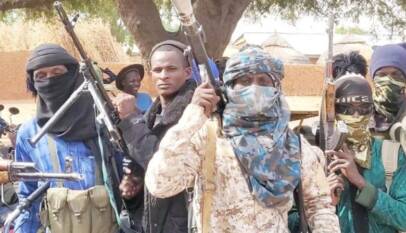This medium condemns recent ceremonies by the federal, Kaduna and Kano states governments that serenaded, celebrated and rewarded minor protesters, some of whom were arrested for looting, arson and wanton destructions that cost the nation and businesses several billions of naira. Conversely, there are youths who toil daily for their survival, without recognition or support from government.
Now, in the aftermath of this case, what do we see? Once in court, these minors are not just released – they are celebrated. Feasts, gifts, and public acknowledgements follow. It’s as if we’ve missed the point entirely. This is, disturbingly, not new. It’s a replay of past patterns—look at the Niger Delta amnesty. There, “amnesty” became a reward for militancy, and those who stayed within the bounds of law went unrecognized. The situation of these minors raises a troubling echo: are we again creating a culture where negative behaviour is more recognised and rewarded than positive contribution?
Reward Sends Wrong Signals
Think of the message that this sends. In a nation where thousands of young, law-abiding citizens work hard for recognition or even basic opportunities, what does it mean when we reward those who, however innocently, step out of line? It’s one thing to release them, but to celebrate them? That is something else entirely. We saw this before with the Niger Delta case—where the “bad boys” got amnesty and payouts, while those who worked diligently for their communities received nothing. Are we, again, promoting a cycle where risk and defiance attract recognition while responsibility is ignored?
Government Involvement: What’s the Goal Here?
This brings us to the government’s role, with governors from Kano and Kaduna and even the presidency stepping in. Why this intervention, and to what end? The gesture of clemency might look good on the surface, but without addressing root issues, it’s just that – a gesture. Releasing them without reform signals that such behaviour might even be desirable. What is needed is not just clemency; it’s a clear, actionable framework to ensure children are not used as pawns by those with hidden motives. We need prevention, not just reaction.
The Real Need: Structural Reform Over Symbolic Gestures
This is a pivotal moment. Instead of feasts and fanfare, we need measures that engage young people meaningfully. Let us guide them into real, constructive dialogues where they can be heard without being endangered. Our young people don’t need handouts after the fact – they need respect, education, and structures that prevent them from becoming tools in others’ games. The government should be fostering responsible citizenship, not rewarding those who take on unnecessary risks to make a statement.



























